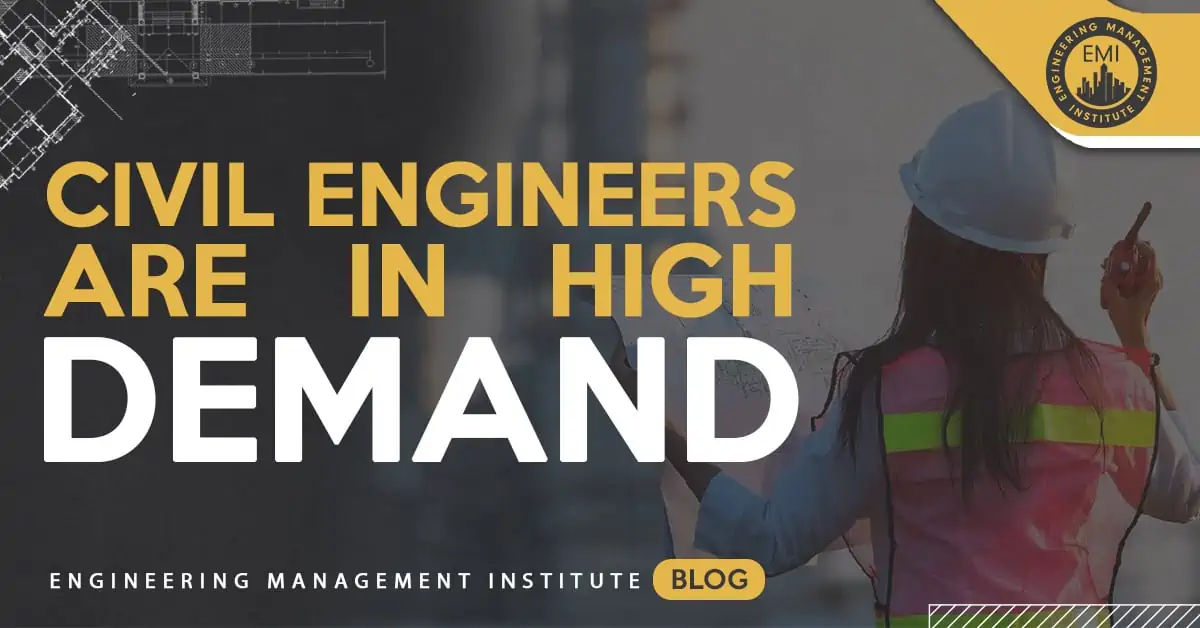This is a guest post by Dr. Rae Taylor
I am a member of the social networking site “Nextdoor” (I call it a nosy neighbor site). I joined for the COVID updates and to volunteer my superpowers as a relatively young, low-COVID-risk person. But I stayed for the complete insanity that is village gossip. I was a little shocked to get a notification from my county saying “Civil Engineers!!! We need you!” I clicked on the post and it sounded a little desperate. It seems my county doesn’t mind what stage of your career you are in, what area of civil engineering you are in, or even if you get your job ads from a site used primarily to discuss whose dog is barking at what time.
In the same week, I got an email from a city not too far from me, where I had unsuccessfully applied for a job in 2016, asking me if I would like to apply for a job again. They provided a link to the job they were thinking about, but stressed that if anything else caught my eye I should apply for that too.
The following week I got two messages on LinkedIn from recruiters about civil engineering jobs, located about two hours away, that they thought I might like to apply for.
Now is a good time to point out that while I have worked as a civil engineer before, until now I have never been recruited as one. There is a convincing argument that when you get a Ph.D., you will no longer be a good engineer. Clearly this is an oversimplification, and an enjoyable discussion can be had on this. But I would say that I can’t think of a person I know, or know of (other than me), who has done graduate-level research and then gone into an EIT or P.E. role exclusively. So it should make sense when I tell you that previously, all the messages I got recruiting me to apply for a job were for jobs in R&D, teaching and talking about research, or in one fun case setting up experiments for a TV show. But not civil engineering jobs. As such, these latest recruiting messages conjured up visions of a barrel and an entire HR department reaching as far as they can to the base.
So what’s happening and should we be worried? Well, lots, and yes, always.
I know we all read the news and industry magazines, so I won’t repeat what they all say here, except to summarize the news in recruitment since 2019, which basically consists of one long “arrrrrrrrrrh.”
Civil engineering is still dealing with the fallout of the 2008 recession: high layoff numbers deterred college students from entering civil engineering, thus reducing the number of people who would work their way up through companies via practical experience. There is also the argument that the tech industry, with its high pay, work-from-home options, and ping pong in the office, is attracting away some of the would-be civil engineers. The situation isn’t going to get better with the aging population, or as I like to call it, our “full of people looking forward to retirement and taking their knowledge and experience out the door” population.
We need a solution to this problem. But first, what is the problem? Why have the numbers not picked up?
When I first told people I was going to university to study civil engineering, I was asked by all but one person what that was. The people I knew didn’t know what a civil engineer was. So clearly that’s a starting point in recruitment: increasing awareness of the civil engineering profession. While at Uni, I got that same question again and again, but I also got questions from people in my major asking where I thought the major was going. I don’t know what they had been told before signing up, but a lot of them didn’t get what they were expecting and either dropped out or, in many cases, graduated and went into a completely different field. Clearly, these people had an idea of what civil engineering was, but not the full picture. I wonder how many more people don’t have that complete picture and so don’t go into a profession that they might have loved?
The direction we get for these blogs is “be upbeat and answer a question.” So not to be too doom and gloom, but while there is a solution, but it will take time. We civil engineers need to raise awareness of what we do and encourage others into our profession. And how do we do this? Outreach, outreach, outreach. Some companies do a great job of this and can help you find some outreach you would enjoy. Besides your employer, you could look to a professional institution (should you be affiliated with one), though I found that relevant opportunities through my institution were out of date or geographically impossible. Should you have the same issues as I did, you may find Start Engineering could be a great place to start (see what I did there?).
Go volunteer! Convince some young people that what we do is important and that we need them to do it too!
What was the reaction on the nosy neighbor site, you ask? Well, they all agreed that we need new engineers in the area, because they don’t like all the new traffic circles.
About the Author:

I hope you enjoyed this week’s post by guest author Rae Taylor. If you’re interested in your firm possibly joining the Civil Engineering Collective, please contact us here or call us at 800-920-4007.
I hope you’ll join us.
Anthony Fasano, P.E.
Engineering Management Institute
Author of Engineer Your Own Success


